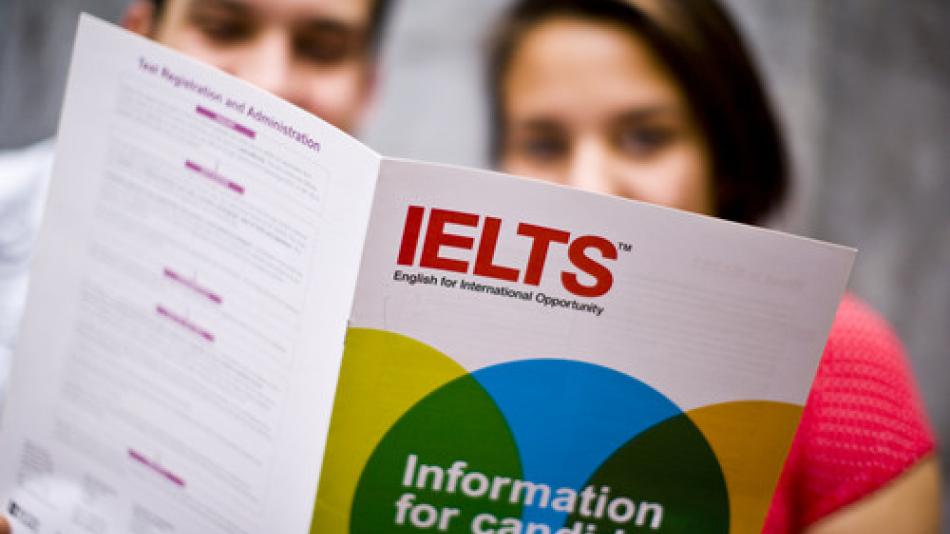For a successful IELTS exam
If the coming IELTS is worrying you, listening to advices from experienced trainers and top achievers will be a great choice.

Illustrative photo: Ground Report
Saiyeda Patel, a lady from India who scores 8.5 for her IELTS test, gives her best advice to the other students aiming to improve their score are as followed:
Practicing for IELTS is then the next step to achieve a good band score. I was given some preparatory material (a book with various exercises) by IELTS test center. I practiced in solving the exercises from that book for about 30 minutes a day for 25 days.
I especially concentrated on the Listening tasks while solving those with my headphones on. I am not an attentive person, so losing track of what was being said was fairly common while practicing. I tried to tackle this weakness of mine by concentrating really hard."
In terms of Speaking test, she said: " It is not the same as chatting with your friend. In IELTS, you are supposed to sound intelligible while framing answers to questions while using your vocabulary properly and being grammatically correct at the same time. Tough task! Therefore, asking a friend or family member to interview you regularly before the Test using the sample questions in your practice book will definitely help.
"For the Reading Test I didn’t do much except for solving the exercises in my book and making mental notes about where and why I have made mistakes so that I won’t repeat those again, especially not in my IELTS Test.
Lastly, the Writing Test: I read the solved essays at the end of the book to understand the criteria of what constitutes a good essay – length, clarity, flow, etc. and tried to model my essays on those lines.”
 |
Illustrative photo CIMT
Meanwhile, Bryan Dowie, an IELTS teacher from Hongkong, shares his advices:
"Whether you are taking IELTS Academic or General Training, you will need to write a 250 word essay in the Writing Part 2. You will perform much better if you understand what the examiner is looking for — and then deliver it.
First, let’s look at the IELTS assessment criteria:
Task achievement. This means you should answer all parts of the question, your answer must be relevant, and you should provide supporting ideas for the points you are making.
Coherence and cohesion. Your writing should be structured so it is easy to read and understand. This means you need to organise your ideas into paragraphs. You also need to link your ideas with words like however, therefore and despite.
Lexical resource. To get a good score, you need to use a wide range of vocabulary. Not everything has to be 100% correct, but any errors you do make should be few in number and should not affect understanding.
Grammatical range and accuracy. As with vocab, you should use a variety of grammatical structures, and any grammatical errors should be few in number and should not affect understanding.
“I seriously believe that you need to have at least some command of the language to do well in your IELTS test. One can’t achieve a band score of 7 (which is the least a good University will expect you to have) overnight with just a brief period of practice. Developing a habit of reading books in English, conversing with friends and family in English, watching English media and using proper grammar and vocabulary while writing just about anything is very important" he noted./.
( VNF )
Recommended
 National
National
Vietnam News Today (Jun. 22): Vietnam Makes Remarkable Economic Progress Over Past Decades
 National
National
Vietnam News Today (Jun. 21): Vietnam, China Intensify Experience Sharing in Diplomatic Affairs
 National
National
Vietnam News Today (Jun 20): Vietnam – US reciprocal trade agreement negotiations make significant progress
 National
National
Vietnam News Today (Jun. 19): Export Growth and Trade Surplus Meet Government Targets for Early 2025
 National
National
Vietnam News Today (Jun. 18): Vietnam, New Zealand Ties Entering Strongest Phase
 National
National
Vietnam News Today (Jun. 17): Ties Between Vietnamese and Australian Localities Highlighted in ASEAN Meeting
 National
National
Vietnam News Today (Jun. 16): Vietnam–Cambodia Art Exchange Promotes Cultural Ties
 National
National
